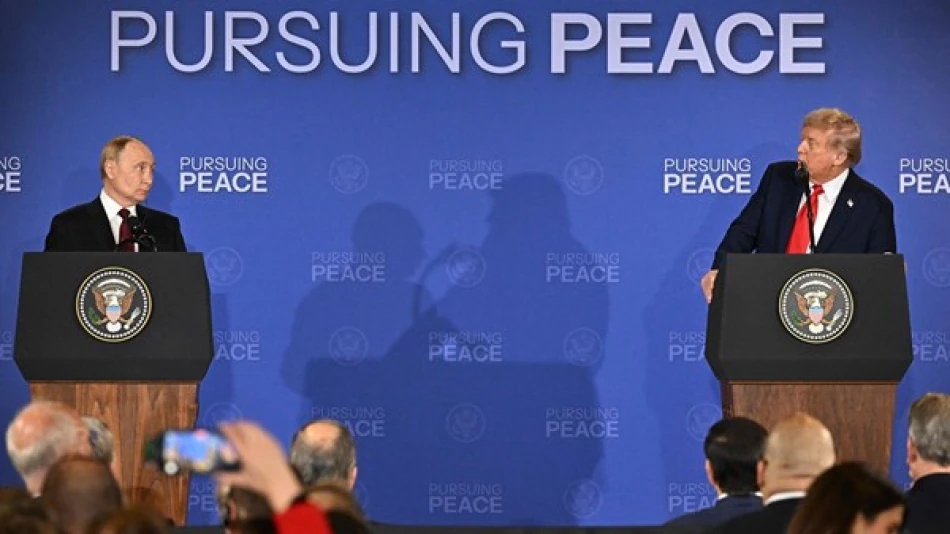
Trump Hints at Ukraine Deal: Navigating Diplomatic Tensions
Trump Claims Ukraine Peace Deal "Within Reach" After Alaska Summit with Putin
President Donald Trump declared Friday that an agreement to end the war in Ukraine could be imminent following his summit with Russian President Vladimir Putin in Alaska, placing the burden of acceptance squarely on Ukrainian leadership while acknowledging Russia's superior military position. The announcement signals a potential breakthrough in the nearly three-year conflict, though Ukraine's consent remains the critical unknown factor.
The 50-50 Gamble on Peace
In a Fox News interview following the Alaska meeting, Trump expressed cautious optimism about prospects for ending the conflict. "I think we're very close to making a deal," he stated, while emphasizing that Ukrainian President Volodymyr Zelenskyy must ultimately agree to any proposed terms.
When pressed on the likelihood of success, Trump offered a measured assessment: "I always say, if you're very close, I say 50/50, because a lot of things can happen. But I think President Putin wants to make a deal."
The president's frank advice to Zelenskyy was characteristically direct: "Make a deal."
Power Dynamics Shape Negotiations
Trump's comments revealed his realistic assessment of the military balance, describing Russia as "a very, very big power" while noting that Ukraine "is not." This acknowledgment of asymmetric capabilities suggests any potential agreement may require significant Ukrainian concessions.
The timing remains unclear whether Trump had briefed Zelenskyy on the Alaska discussions before his public statements, raising questions about coordination between Washington and Kyiv on potential peace terms.
Historical Context and Precedent
Trump's direct engagement with Putin echoes his previous diplomatic approach, including their 2018 Helsinki summit and ongoing dialogue throughout his presidency. The Alaska venue carries symbolic weight, representing neutral ground between the superpowers while avoiding the optics of meetings on either nation's primary territory.
Previous peace initiatives in the Ukraine conflict, including the Minsk agreements and various ceasefire attempts, have repeatedly collapsed due to fundamental disagreements over territorial control and security guarantees.
Market and Geopolitical Implications
Any genuine progress toward Ukrainian peace would likely trigger significant market movements, particularly in energy commodities, defense stocks, and European equities. The conflict has sustained elevated oil prices and grain market volatility while driving increased defense spending across NATO members.
For European allies, Trump's bilateral approach with Putin may raise concerns about being sidelined in negotiations affecting continental security architecture. The EU and NATO have consistently emphasized that any sustainable peace must include Ukrainian territorial integrity and security guarantees.
The Ukrainian Dilemma
Zelenskyy faces an impossible choice between continued warfare with mounting casualties and infrastructure destruction versus accepting terms that likely involve territorial losses and neutrality commitments. Ukrainian public opinion has consistently opposed significant concessions to Russia, creating domestic political constraints on any peace agreement.
The success of any Trump-brokered deal will ultimately depend on whether proposed terms can satisfy Putin's strategic objectives while remaining politically viable for Ukrainian leadership. Given the conflict's trajectory and Russia's current territorial gains, the window for Ukrainian leverage continues to narrow with each passing month.
Most Viewed News

 Layla Al Mansoori
Layla Al Mansoori






